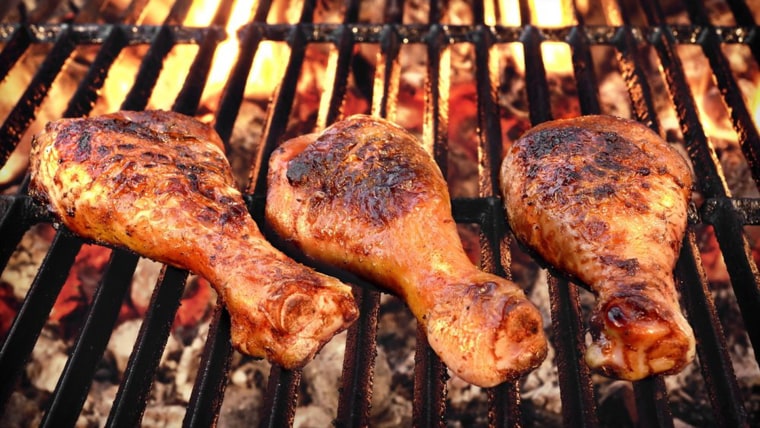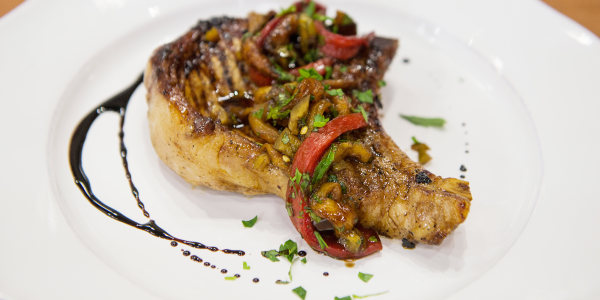Summertime means firing up the grill and whipping up a batch of homemade hot dogs and burgers. But, before you pull out the charcoal and spatula, take a second to consider how to cook your meat properly.
Grilling your meats at high temperature can cause potentially cancer-causing chemicals to form, according to research, although there's no conclusive evidence that grilled meats can cause cancer in humans.
"While some animal studies have suggested an increased cancer risk from consuming Heterocyclic amines (HCA) formed during high temperature cooking such as grilling, consumers should be reassured that the risk occurs at exposure levels thousands of times higher than people are exposed to from ordinary cooking and grilling," Dale Woerner, Ph.D., associate professor at the Center for Meat Safety and Quality, Colorado State University told NBC News.
So you don't have to step away from the grill yet — just learn how to do it safely.
1. Use lean meat.
Meats that contain more fat content tend to have higher carcinogen concentrations when cooked, compared to leaner meats. A carcinogen called polycyclic aromatic hydrocarbons, or PAHs, is released when the fat drippings from the meat mix with the fire. It’s best to keep in mind that less fat means less dripping and less carcinogens are released. If you are feeling adventurous and want to try leaner meat, try ground lamb to replace your traditional ground beef burger.
2. Handle your chicken carefully.
While the National Chicken Council said in a statement that it is not aware of research linking grilled chicken to "anything cancer-causing," it did caution that poultry should be kept refrigerated until ready to cook.

Do not rinse raw poultry in your sink because it won't remove bacteria and can spread raw juices around your sink, the Council warned.
Use one cutting board for fresh produce and a separate one for raw meat, poultry and seafood.
And when grilling chicken outdoors, don't place cooked chicken on the same plate used to transport raw chicken to the grill.
3. Marinate.
Some prep work can help in reducing your risk. Instead of making your burgers and setting them right away on the grill, let the meat mixture marinate in the fridge for a few hours. Allowing the meat to sit and rest helps it to absorb the antioxidants in the herbs and spices.
4. Reduce the temperature.
Turn down the temp! Reducing the temperature of your grill, avoiding lengthy cooking times and keeping your meat away from direct exposure over an open flame or a hot metal surface can all help reduce PAH and HCA formation.
5. Avoid the char and clean the grill.
Limit your charring and splatter by grilling over medium heat rather than a high flame. Reduce the levels of HCA by continuously turning meat over when cooking, versus leaving the meat and not flipping it. Black is risky, so removing charred portions of meat and refraining from using gravy made from meat drippings also helps. Lastly, properly cleaning your grill in between cooking sessions is important.
6. Pre-cook in the oven.
Save yourself some time over the grill by cooking your meats over the stove or in a microwave oven. Meats that are well-done tend to have significantly higher levels of HCAs compared to meats cooked to a medium-rare. Pre-cooking meat, prior to exposing it to the grill, helps reduce the amount of time it sits at high temperatures.
7. Mix in veggies.
Grilled vegetables are different from meats and don’t harbor the same types of cancer risk. By mixing in veggies allows for smaller cuts of meat and reduces the cooking time.
